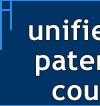Research seminar
Wednesday 10 May, 16:00, Room F 110 (Fusion Building)
A person infringes copyright if she exercises one of the exclusive rights without the licence of the copyright owner. An express licence granted by the copyright owner is the most common example of such a licence. Copyright law in most jurisdictions also provides for statutory limitations and exceptions, to balance the competing interests, including those of copyright owners, content users and public interest. Such limitations and exceptions address specific instances of permitted uses of copyright works to achieve specific policy objectives. If a person’s actions are covered neither by an express licence, nor by the statutory limitations or exceptions, it does not automatically mean that the person has infringed copyright. It may be possible to imply a licence to cover her actions. In contrast to the rigidity of statutory limitations and exceptions, implied licences are characterised by their malleability in being able to address a more diverse set of circumstances as the need arises, providing an additional mechanism to achieve the copyright balance. However, implication as a process is contentious, and there are no established rules for implying a licence. Given the uncertainty surrounding the doctrine of implied licence, courts have not embraced them as readily as they should. This presentation argues that to allay the fears of uncertainty, one must address the process of implication itself, and make it more methodical and transparent. It goes on to provide an overview as to how this may be achieved.
________________________________
Poorna Mysoor is DPhil Candidate at the Faculty of Law of the University of Oxford





